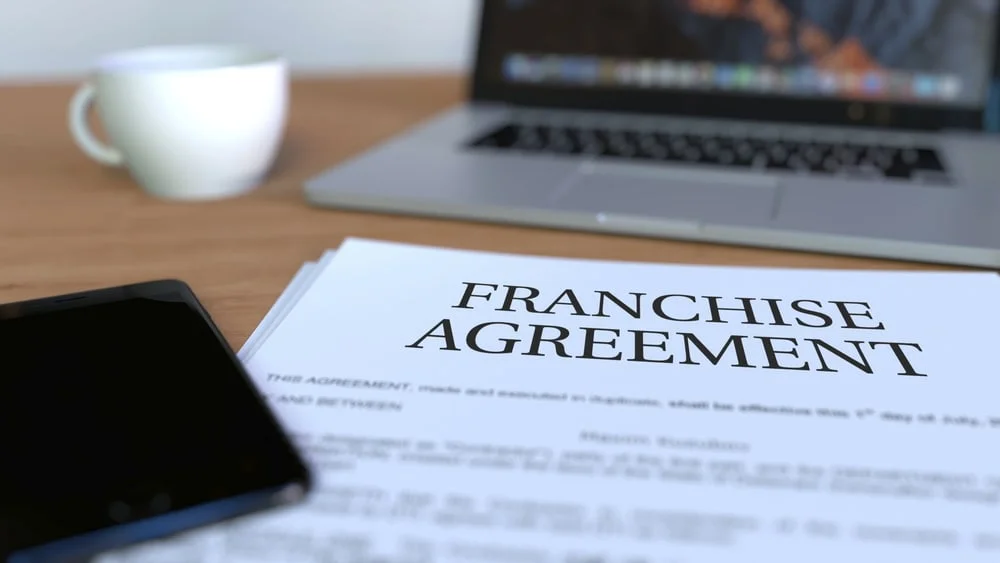Disclaimer
In accordance with the rules of the Bar Council of India, law firms are not permitted to solicit work or advertise. By clicking the "Agree" button and accessing this website (www.jbanerjee.co.in), you acknowledge that you are seeking information voluntarily and that no solicitation has occurred by the Firm or its members.
The information on this website is provided solely at your request for informational purposes only and should not be interpreted as solicitation or advertisement. The Firm is not liable for any consequences of actions taken by users relying on the material or information provided on this website. For any legal issues, you should seek independent legal advice.
-
16, Dr. Suresh Sarkar Road, Kolkata 700014

BY Admin
Understanding Copyright Issues and Laws in India
Hello Reader!
Welcome to the blog page of Jaya Banerjee, one of the best lawyers in Kolkata.
As a practicing lawyer in Kolkata, I, Jaya Banerjee, have encountered numerous cases where the importance of copyright law has come to the fore. Copyright is a crucial legal mechanism that protects the rights of creators over their original works. Whether you are an artist, author, musician, or software developer, understanding copyright laws in India is essential to safeguard your intellectual property.
What is Copyright?

Copyright is a legal mechanism designed to protect the rights of creators over their original works. This protection extends to a wide range of creative outputs, including literary, dramatic, musical, and artistic works, as well as cinematographic films and sound recordings. When a creator produces an original work, copyright grants them exclusive rights to use, reproduce, and distribute their creation. This means that others cannot legally copy, perform, or display the work without the creator’s permission. These exclusive rights also cover the creation of derivative works, which are new creations based on the original work.
The primary objective of copyright is to incentivize creativity and innovation by ensuring that creators can reap the benefits of their intellectual efforts. By securing legal protection for their works, creators are encouraged to continue producing new content, knowing they have control over how their works are used and can potentially earn a livelihood from their creativity. This legal framework not only rewards individual creators but also contributes to the cultural and economic enrichment of society as a whole, fostering an environment where creative and artistic endeavors can flourish.
Copyright Laws in India
The copyright law in India is governed by the Copyright Act of 1957, which has been amended several times to adapt to changing technological and cultural landscapes. The act provides comprehensive protection for original works and outlines the rights and remedies available to copyright holders.
Key Provisions of the Copyright Act, 1957
- Exclusive Rights: The act grants creators exclusive rights to reproduce, distribute, perform, and display their works. It also covers the right to create derivative works.
- Duration of Copyright: For most works, copyright protection lasts for the lifetime of the author plus 60 years after their death. For works published anonymously or under a pseudonym, cinematographic films, sound recordings, and photographs, the protection lasts for 60 years from the date of publication.
- Infringement and Remedies: Copyright infringement occurs when someone uses a protected work without permission. The act provides for civil remedies, including injunctions, damages, and accounts of profits, as well as criminal penalties for willful infringement.
- Fair Use: The act allows for certain exceptions under the doctrine of fair use, including use for criticism, comment, news reporting, teaching, scholarship, or research.
- Registration: While registration is not mandatory for copyright protection, it serves as prima facie evidence in court, making it easier to enforce rights.
Copyright Infringement: Case Studies and Legal Precedents

Several landmark cases in India have played a crucial role in shaping the interpretation and enforcement of copyright laws. These cases provide valuable insights into how copyright issues are addressed in the Indian legal system.
- R.G. Anand vs. M/s. Deluxe Films
-
-
- Issue: This case centered around the question of whether copying the fundamental idea of another’s work constitutes copyright infringement.
- Supreme Court’s Ruling: The Supreme Court of India held that if a person has copied the fundamental idea of another’s work, it constitutes infringement. However, the court also clarified that if the idea is expressed in a distinctly different manner, it may not amount to infringement. This distinction between the idea and its expression is a critical aspect of copyright law.
-
- Eastern Book Company vs. D.B. Modak
-
- Issue: This case dealt with the copyrightability of judicial decisions and the distinction between original literary works and compilations.
- Supreme Court’s Ruling: The Supreme Court examined whether judicial decisions, which are in the public domain, could be copyrighted when compiled in a specific format by a publisher. The court ruled that while the judicial decisions themselves are not subject to copyright, the unique format, typographical arrangement, and additional content created by the publisher could be protected under copyright law. This case highlighted the importance of originality and creativity in compilations and their distinction from merely public domain materials.
Role of a Lawyer in Copyright Protection

As one of the best lawyers in Kolkata, I have extensive experience in handling copyright issues. My role involves advising clients on protecting their works, ensuring compliance with copyright laws, and representing them in infringement disputes. Whether you need assistance with copyright registration, drafting licensing agreements, or litigating infringement cases, having a knowledgeable lawyer in Kolkata is crucial to protecting your rights.
Why Choose Jaya Banerjee as Your Copyright Lawyer?
- Expertise: With years of experience in intellectual property law, I offer in-depth knowledge and strategic advice tailored to your needs.
- Personalized Service: I take the time to understand your specific situation and provide customized solutions to protect your creative works.
- Proven Track Record: My successful representation of clients in various copyright cases speaks to my capability and commitment.
FAQ
- What types of works are protected by copyright in India?
Answer: In India, copyright protection extends to a variety of original works, including:
- Literary works (e.g., books, articles, poems)
- Dramatic works (e.g., plays, screenplays)
- Musical works (e.g., songs, compositions)
- Artistic works (e.g., paintings, sculptures, photographs)
- Cinematographic films
Sound recordings
- These works must be original and expressed in a tangible form to be eligible for copyright protection.
- How long does copyright protection last in India?
Answer: The duration of copyright protection in India varies depending on the type of work:
- For most works, such as literary, dramatic, musical, and artistic works, the copyright lasts for the lifetime of the author plus 60 years after their death.
- For works published anonymously, under a pseudonym, cinematographic films, sound recordings, and photographs, the protection lasts for 60 years from the date of publication.
- What constitutes copyright infringement under Indian law?
Answer: Copyright infringement occurs when a protected work is used without the permission of the copyright holder. This includes:
- Reproducing the work
- Distributing copies of the work
- Performing the work in public
- Making adaptations or derivative works
Displaying the work publicly
- Infringement can result in both civil and criminal penalties, including injunctions, damages, and fines.
- Are there any exceptions to copyright infringement in India?
Answer: Yes, Indian copyright law provides for certain exceptions under the doctrine of fair use, which allows limited use of copyrighted material without permission. These exceptions include:
- Use for criticism or review
- Use for news reporting
- Use for teaching and research
- Use by libraries and archives for preservation purposes
Use in judicial proceedings
- These exceptions are intended to balance the rights of creators with the public interest.
- Do I need to register my work to get copyright protection in India?
Answer: No, registration is not required to obtain copyright protection in India. Copyright is automatically granted to the creator as soon as the work is created and fixed in a tangible form. However, registering your work can provide significant benefits:
- It serves as prima facie evidence of ownership in court.
- It makes it easier to enforce your rights and claim damages in case of infringement.
- It can deter potential infringers by establishing a public record of your copyright.
Understanding these key aspects of copyright law can help creators and users of creative works navigate the complexities of intellectual property rights in India.
Conclusion
Copyright law is a vital tool for protecting creativity and innovation. By understanding your rights and seeking professional legal assistance, you can ensure that your works are safeguarded against unauthorized use. If you are looking for the best lawyer in Kolkata to help with copyright issues, I, Jaya Banerjee, am here to provide expert guidance and representation.


